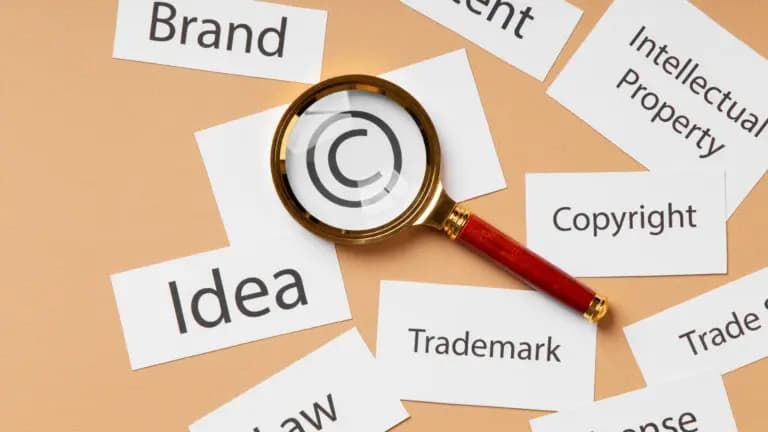Marcas Descriptivas vs. Marcas Distintivas

Las marcas descriptivas y las marcas distintivas se refieren a diferentes enfoques para la elección y creación de marcas. Cada enfoque tiene sus propias ventajas y desventajas en términos de protección legal y reconocimiento en el mercado.
Marca Descriptiva
Una marca descriptiva es aquella que describe directamente las características o cualidades del producto o servicio al que se aplica. Por ejemplo, “Ropa Cómoda” para una línea de ropa cómoda o “Pizza Deliciosa” para una pizzería. Estas marcas son claras y comprensibles de inmediato para los consumidores, ya que comunican directamente lo que se puede esperar del producto o servicio.
Ventajas:
- Claridad: Los consumidores comprenden rápidamente el propósito o características del producto o servicio.
- Comunicación directa: La marca puede ayudar a transmitir los beneficios o atributos del producto de manera efectiva.
Desventajas:
- Débil protección legal: Las marcas descriptivas son menos propensas a recibir protección legal sólida, ya que no son inherentemente distintivas.
- Dificultad en la diferenciación: Puede ser difícil destacar en un mercado saturado si la marca no es única y distintiva.
- Limitación a un nicho: Una marca descriptiva puede limitar las expansiones futuras de la empresa a otros productos o servicios que no se ajusten a la descripción inicial.
Marca Distintiva
Una marca distintiva es aquella que es única, creativa y no directamente relacionada con las características del producto o servicio. Estas marcas tienden a ser inventadas, fantasiosas o asociadas con conceptos abstractos. Ejemplos incluyen “Google” o “Nike”. Estas marcas buscan destacar en el mercado y crear una asociación específica con la empresa.
Ventajas
- Protección legal más fuerte: Las marcas distintivas suelen ser más fáciles de registrar y proteger legalmente, ya que son únicas y no descriptivas.
- Memorabilidad: Las marcas distintivas pueden ser más fáciles de recordar y reconocer para los consumidores.
- Flexibilidad: Estas marcas pueden adaptarse a diversos productos y servicios, lo que facilita la expansión de la empresa.
Desventajas
- Costo y esfuerzo: Crear y posicionar una marca distintiva puede requerir más inversión en marketing y esfuerzo para establecer su significado en el mercado.
- Incertidumbre inicial: Puede llevar tiempo para que los consumidores asocien la marca con la empresa y sus productos/servicios.
- Posible confusión inicial: Las marcas inventadas pueden generar confusión en un principio hasta que se establezca su significado.
En general, las marcas distintivas tienden a ser más beneficiosas en términos de protección legal y capacidad para crear una identidad única en el mercado. Sin embargo, requieren un esfuerzo inicial y estratégico para establecer su significado. Las marcas descriptivas pueden ser más comprensibles de inmediato, pero enfrentan limitaciones legales y pueden tener dificultades para destacar en un mercado competitivo.
Cibergrafía
https://www.asuntoslegales.com.co/consultorio/que-son-signos-descriptivos-2290766
https://ramirezesteves.com.mx/2023/08/01/1501/
https://www.obsbusiness.school/blog/que-son-los-signos-distintivos-en-una-empresa#:~:text=Se%20denominan%20signos%20distintivos%20todos,servicios%20o%20cualquier%20otra%20cosa. Copiar Imagen Destacada:Imagen destacada Categorías: Registro de marca
Contenido en Inglés Título (Traducción): Descriptive Marks vs. Marcas Distintivas
Slug (Traducción): descriptive-marks-vs-marcas-distintivas
Contenido (Traducción): Descriptive marks and distinctive marks refer to different approaches to the choice and creation of trademarks. Each approach has its own advantages and disadvantages in terms of legal protection and market recognition.
Descriptive Mark
A descriptive mark is one that directly describes the characteristics or qualities of the product or service to which it is applied. For example, “Comfortable Clothes” for a line of comfortable clothing or “Delicious Pizza” for a pizzeria. These marks are clear and immediately understandable to consumers, as they communicate directly what to expect from the product or service.
Advantages:
- Clarity: Consumers quickly understand the purpose or characteristics of the product or service.
- Direct communication: The brand can help convey the benefits or attributes of the product effectively.
Disadvantages:
- Weak legal protection: Descriptive marks are less likely to receive strong legal protection, as they are not inherently distinctive.
- Difficulty in differentiation: It can be difficult to stand out in a saturated market if the brand is not unique and distinctive.
- Niche limitation: A descriptive mark may limit future expansions of the business to other goods or services that do not fit the initial description.
Distinctive Mark
A distinctive mark is one that is unique, creative and not directly related to the characteristics of the product or service. These marks tend to be invented, fanciful or associated with abstract concepts. Examples include “Google” or “Nike”. These brands seek to stand out in the market and create a specific association with the company.
Advantages
- Stronger legal protection: Distinctive marks are usually easier to register and legally protect, as they are unique and non-descriptive.
- Memorability: Distinctive brands can be easier for consumers to remember and recognize.
- Flexibility: These brands can be adapted to different products and services, which facilitates the company’s expansion.
Disadvantages
- Cost and effort: Creating and positioning a distinctive brand may require more marketing investment and effort to establish its significance in the marketplace.
- Initial uncertainty: It may take time for consumers to associate the brand with the company and its products/services.
- Possible initial confusion: Invented marks may initially generate confusion until their meaning is established.
In general, distinctive marks tend to be more beneficial in terms of legal protection and ability to create a unique identity in the marketplace. However, they require an initial, strategic effort to establish their significance. Descriptive marks may be more immediately understandable, but face legal limitations and may have difficulty standing out in a competitive market.
Cybergraphy
https://www.asuntoslegales.com.co/consultorio/que-son-signos-descriptivos-2290766
https://ramirezesteves.com.mx/2023/08/01/1501/
https://www.obsbusiness.school/blog/que-son-los-signos-distintivos-en-una-empresa#:~:%20otra%. .
Artículos recomendados
Servicios que podrían interesarte
Registro de Marca en Estados Unidos con Servicio Legal
Protege tu marca en EE. UU. con asesoría experta. Registro ante la USPTO, búsqueda de antecedentes y gestión de todo el proceso. ¡Solicita tu consulta hoy mismo!
¿Deseas asesoría?
Diligencia el siguiente formulario y te contactaremos
- Teléfono:300 388 4986
- WhatsApp:Haz clic para iniciar tu chat de WhatsApp

